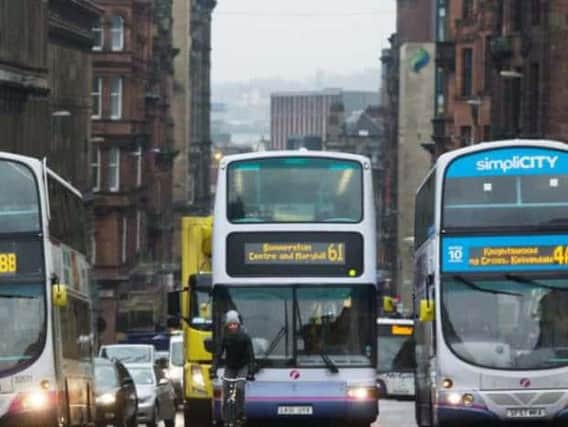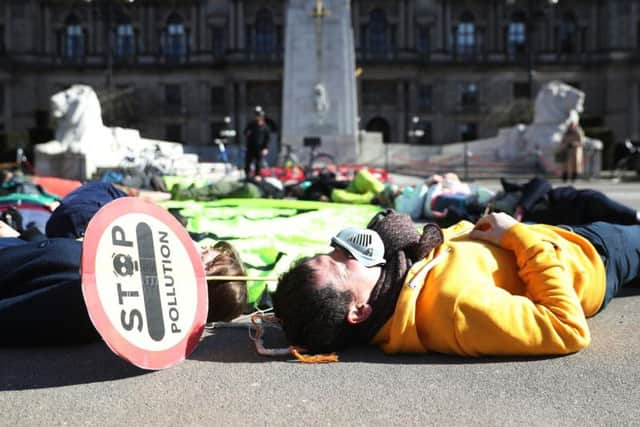Congestion charge urged to beef up Glasgow low emission zone


The surprise move came as environmental campaigners failed to get restrictions on vehicles entering Scotland’s first LEZ brought forward.
Only one in five bus journeys will have to be on vehicles with the cleanest engines after the zone is launched on 31 December.
Advertisement
Hide AdAdvertisement
Hide AdBACKGROUND: Glasgow city centre ban on all but cleanest vehicles from 2022The proportion will increase by stages to 100 per cent in 2022, with “substantial” funding available to bus operators to retrofit older engines to make them cleaner.


The phasing of restrictions for cars and other vehicles up to that date has yet to be announced.
LEZs are also due to be introduced in Edinburgh, Aberdeen and Dundee by 2020.
Glasgow City Council’s environment, sustainability and carbon reduction city policy committee yesterday agreed to the Labour call for congestion charging.
The SNP-run Glasgow City Council said the proposal would now be considered by its city administration committee.


Labour’s plan called for the council to commit to introducing road user charging by December 2020. It comes 13 years after Labour’s plans for a congestion charging scheme in Edinburgh was defeated in a city referendum.
The party said revenue from road tolls would help improve public transport.
Another Labour proposal, for non-compliant buses using the zone being fined, was also agreed by the committee.
Advertisement
Hide AdAdvertisement
Hide AdThe council currently plans to tackle this by adding conditions to operators’ licences, which could be revoked by the Traffic Commissioner.
Glasgow Labour group transport spokesman Matt Kerr said: “The level of congestion in Glasgow city centre does not work for anyone.
“Congestion sacrifices economic growth, harms the attractiveness of our city centre, and, most of all, is a huge risk to public health in the city.
“The plans the SNP have put forward are unambitious, fall short of the promises that have been made and ultimately represent a public cash bonanza to unaccountable private bus companies.
“By introducing this measure, we will make public transport and active travel cheaper and more attractive options.”
Protesters from Friends of the Earth Scotland wearing gas masks staged a “die-in” outside the City Chambers in George Square to highlight the council’s “weak” LEZ plans to tackle air pollution.
Air pollution campaigner Emilia Hanna said: “Today’s decision means the people of Glasgow will be exposed to illegal levels of dirty air for years to come.
“These weak plans will create a ‘No Ambition Zone’ that will have little to no impact on the city’s air pollution problems.”
Advertisement
Hide AdAdvertisement
Hide AdAnna Richardson, the council’s convener for sustainability and carbon reduction, said:
“It’s recognised the introduction of a LEZ needs to be proportionate and managed in such a way that ambition and practicality can be balanced.”
She said its phasing had to be done “at a robust yet realistic pace” that will bring about the air quality improvements we need without having a detrimental impact on transport or Glasgow’s economy and businesses.